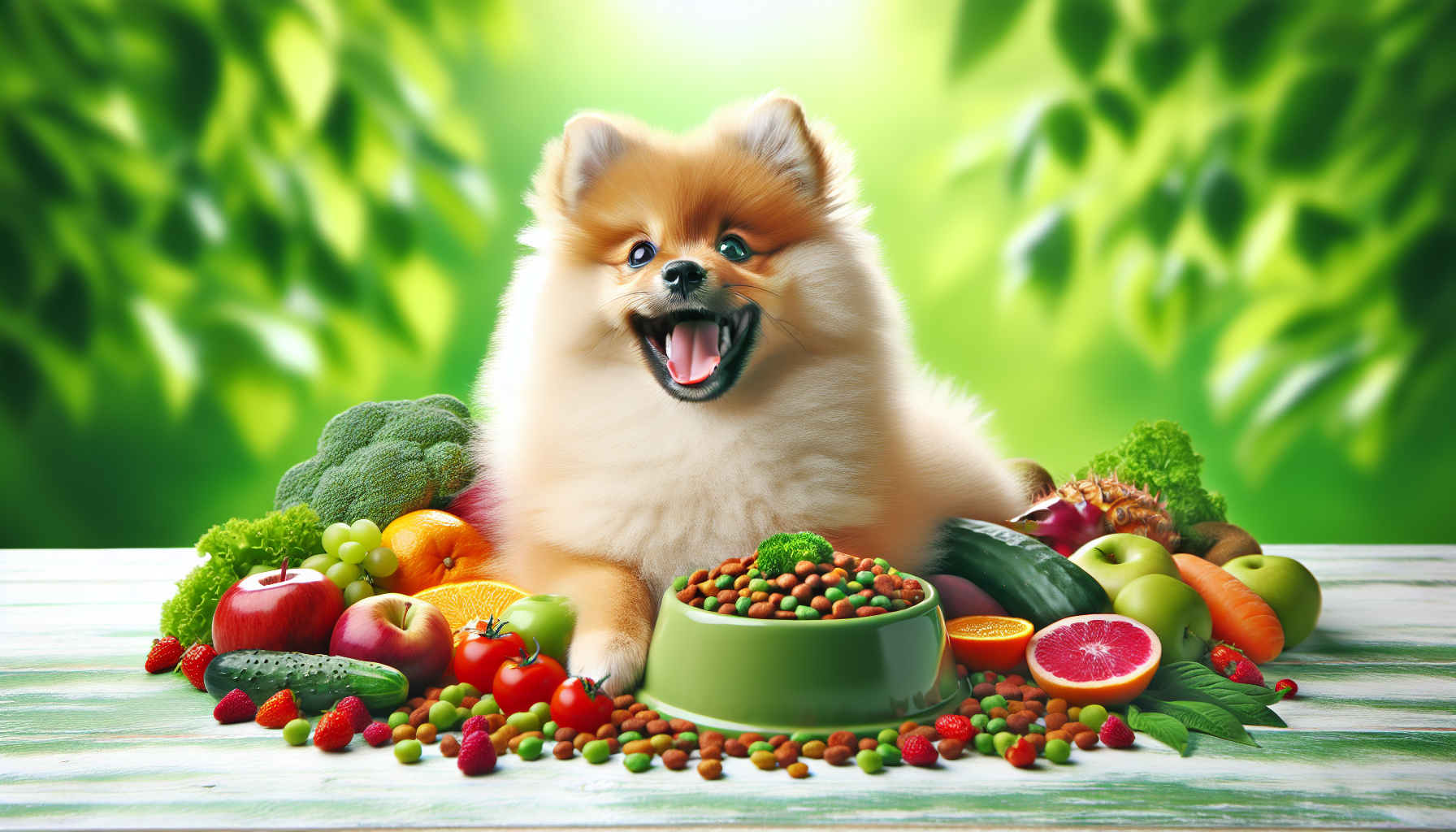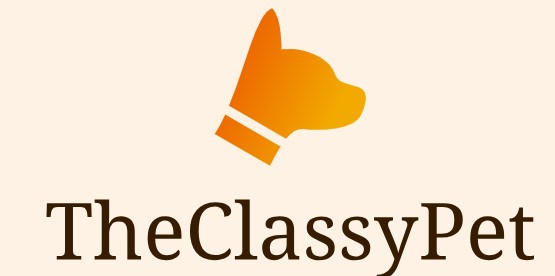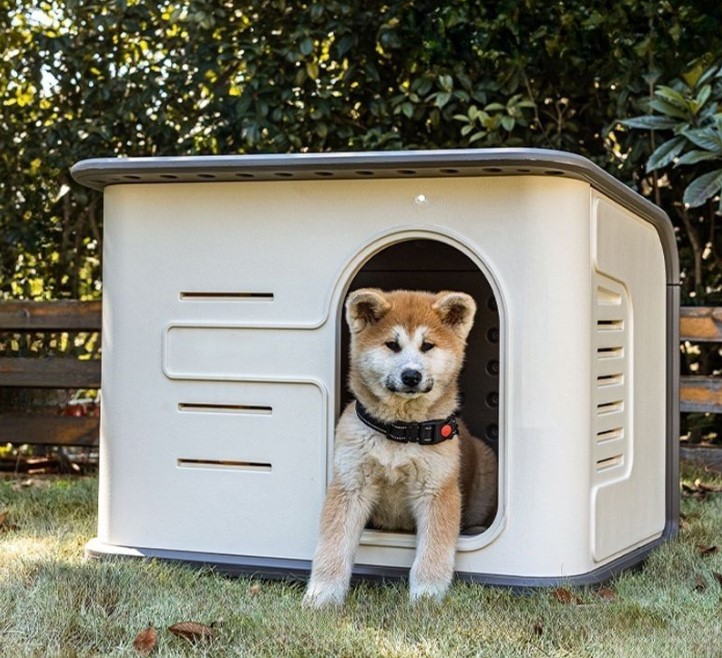Nurturing a Thriving Spitz Puppy on a Plant-Based Diet

Raising a Spitz puppy is a thrilling experience, and making the conscious decision to do so in a vegetarian family can be a wonderful opportunity to instill compassion and empathy in your family. However, it’s crucial to acknowledge that a Spitz puppy’s nutritional needs differ significantly from those of humans. As a responsible pet owner, it’s essential to ensure that your furry friend receives the necessary nutrients for optimal growth and development.
A well-planned vegetarian diet can provide all the necessary nutrients for a healthy Spitz puppy. However, it’s vital to be aware of the potential pitfalls and challenges that come with raising a vegetarian Spitz puppy. In this article, we’ll delve into the world of vegetarian Spitz puppy care, exploring the essential nutrients, creating a balanced diet, and addressing common challenges that may arise.
By the end of this article, you’ll be equipped with the knowledge and confidence to provide your Spitz puppy with a healthy, balanced, and nutritious vegetarian diet. Whether you’re a seasoned pet owner or a newcomer to the world of dog ownership, this comprehensive guide will walk you through the process of raising a happy and healthy vegetarian Spitz puppy.
1. Understanding the Nutritional Needs of a Spitz Puppy
Understanding the nutritional needs of a Spitz puppy is crucial for their growth and development. A Spitz puppy requires a balanced diet that provides essential nutrients, vitamins, and minerals. The key nutrients for a Spitz puppy’s growth and development include protein, fat, carbohydrates, vitamins, and minerals. Protein is a critical component, as it provides the necessary building blocks for muscle growth and development. Fat is another essential nutrient, as it provides energy and helps maintain a healthy coat. Carbohydrates, while not essential, can provide energy and support digestive health.
In addition to these macronutrients, a Spitz puppy also requires essential vitamins and minerals, such as vitamin A, vitamin D, calcium, and phosphorus. These nutrients play a critical role in maintaining a healthy immune system, skin, coat, and bones. A Spitz puppy’s diet should also be rich in omega-3 fatty acids, which support heart health and brain function. It’s essential to ensure that your Spitz puppy receives a balanced and nutrient-rich diet to support their overall health and development.
A Spitz puppy’s nutritional needs vary depending on their age, size, and breed. Puppies require a more concentrated diet than adult dogs, as they need to support rapid growth and development. It’s essential to consult with a veterinarian or canine nutritionist to determine the best diet for your Spitz puppy, as they can provide personalized recommendations based on your puppy’s specific needs and requirements.
Protein Requirements
Protein is a crucial component of a Spitz puppy’s diet, providing essential amino acids necessary for growth, development, and maintenance. A Spitz puppy requires a minimum of 22% protein on a dry matter basis, with some studies suggesting that even higher levels may be beneficial. Protein is essential for building and repairing tissues, including muscles, organs, and skin. A protein-rich diet also supports a healthy immune system and can help prevent conditions such as hypoglycemia and seizures.
For vegetarian Spitz puppy owners, meeting their puppy’s protein requirements can be a challenge. However, there are many plant-based protein sources that can provide the necessary amino acids. Legumes, such as lentils, chickpeas, and black beans, are high in protein and can be easily incorporated into a Spitz puppy’s diet. Other plant-based protein sources include nuts, seeds, and whole grains. It’s essential to ensure that the protein sources are balanced and complete, providing all the necessary amino acids for optimal growth and development.
When selecting plant-based protein sources for your Spitz puppy, it’s crucial to consult with a veterinarian or canine nutritionist to ensure that the diet is balanced and complete. They can help you create a customized diet that meets your puppy’s specific needs and requirements. Additionally, it’s essential to monitor your puppy’s health and adjust the diet as necessary to ensure they are receiving the necessary nutrients for optimal growth and development.
Vitamin and Mineral Supplements
Vitamin and mineral supplements play a crucial role in ensuring a Spitz puppy’s overall health and well-being. While a balanced diet can provide many of the necessary nutrients, supplements can help fill any gaps and ensure that your puppy is receiving everything they need. For example, vitamin D is essential for bone growth and development, while calcium and phosphorus are critical for strong teeth and bones. Omega-3 fatty acids, found in fish oil supplements, support heart health and brain function.
When choosing vitamin and mineral supplements for your Spitz puppy, it’s essential to consult with a veterinarian or canine nutritionist. They can help you determine which supplements are necessary and recommend high-quality products that meet your puppy’s specific needs. It’s also important to remember that supplements should not replace a balanced diet, but rather complement it. Additionally, be sure to follow the recommended dosage and administration guidelines to avoid any adverse reactions.
Some key supplements to consider for your Spitz puppy include vitamin D, calcium, phosphorus, and omega-3 fatty acids. Other supplements, such as probiotics and joint support formulas, may also be beneficial depending on your puppy’s individual needs. Always prioritize your puppy’s health and safety by consulting with a veterinarian or canine nutritionist before adding any supplements to their diet. By doing so, you can ensure that your Spitz puppy is receiving the necessary nutrients for optimal growth and development.
2. Creating a Balanced Vegetarian Diet for Your Spitz Puppy

Creating a balanced vegetarian diet for your Spitz puppy requires careful planning and attention to detail. A well-rounded vegetarian diet should include a variety of protein sources, whole grains, fruits, and vegetables. It’s essential to ensure that your puppy’s diet is rich in essential nutrients, vitamins, and minerals. A good starting point is to consult with a veterinarian or canine nutritionist who can provide personalized guidance and recommend a balanced diet.
When preparing a vegetarian diet for your Spitz puppy, it’s crucial to consider the nutrient profile of each ingredient. For example, legumes such as lentils and chickpeas are high in protein and fiber, while whole grains like brown rice and oats provide sustained energy. Fresh fruits and vegetables add essential vitamins and minerals, while healthy fats like coconut oil and flaxseed support skin and coat health. A balanced diet should also include a source of calcium, such as fortified plant-based milk or dark leafy greens, to support bone growth and development.
Remember, every Spitz puppy is unique, and their nutritional needs may vary depending on their age, size, and breed. By consulting with a veterinarian or canine nutritionist and doing your research, you can create a balanced vegetarian diet that meets your puppy’s individual needs. With a little patience and creativity, you can provide your Spitz puppy with a healthy, nutritious, and balanced vegetarian diet that will support their growth and development.
Homemade Diet vs. Commercial Food
When it comes to feeding your Spitz puppy, you have two primary options: preparing a homemade vegetarian diet or relying on commercial dog food. Both options have their pros and cons, and it’s essential to weigh these factors carefully to make an informed decision. A homemade vegetarian diet can offer greater control over the ingredients and nutrient content, allowing you to tailor the diet to your puppy’s specific needs and preferences. Additionally, homemade diets can be more cost-effective and environmentally friendly.
On the other hand, commercial dog food can be a convenient and time-saving option, especially for busy pet owners. Many commercial dog foods are formulated to meet specific nutritional standards, and they can provide a consistent and reliable source of nutrition. However, some commercial dog foods may contain low-quality ingredients, preservatives, and additives that can be detrimental to your puppy’s health. Furthermore, commercial dog foods may not be tailored to your puppy’s individual needs, which can lead to nutritional deficiencies.
Ultimately, the decision between a homemade vegetarian diet and commercial dog food depends on your individual circumstances, lifestyle, and preferences. If you have the time and resources to prepare a balanced and nutritious homemade diet, it may be the best option for your Spitz puppy. However, if you prefer the convenience and reliability of commercial dog food, be sure to choose a high-quality product that meets your puppy’s nutritional needs. It’s essential to consult with a veterinarian or canine nutritionist to determine the best feeding option for your puppy.
Incorporating Plant-Based Protein Sources
Incorporating plant-based protein sources into your Spitz puppy’s diet is essential for providing the necessary amino acids for growth and development. Legumes, such as lentils, chickpeas, and black beans, are excellent sources of protein and fiber. They are rich in essential amino acids, including arginine, lysine, and threonine, which are vital for muscle growth and maintenance. Legumes are also rich in complex carbohydrates, which provide sustained energy and support digestive health.
Nuts and seeds are another excellent source of plant-based protein for your Spitz puppy. Almonds, pumpkin seeds, and chia seeds are all high in protein and healthy fats, which support skin and coat health. Additionally, nuts and seeds are rich in antioxidants, vitamins, and minerals, which support overall health and well-being. When incorporating nuts and seeds into your puppy’s diet, be sure to choose unsalted and unsweetened options to avoid adding excess sodium and sugar.
When selecting plant-based protein sources for your Spitz puppy, it’s essential to consider the nutrient profile and digestibility of each ingredient. For example, some legumes, such as kidney beans, may be high in phytates, which can inhibit nutrient absorption. Similarly, some nuts and seeds may be high in fat, which can lead to weight gain and pancreatitis. By consulting with a veterinarian or canine nutritionist, you can determine the best plant-based protein sources for your Spitz puppy and ensure they are receiving a balanced and nutritious diet.
3. Additional Care Tips for a Healthy Spitz Puppy
While a balanced diet is essential for a healthy Spitz puppy, it’s just one aspect of their overall care. Providing regular exercise and playtime is crucial for their physical and mental well-being. Spitz puppies require daily exercise, such as walks, runs, and playtime, to burn off excess energy and maintain a healthy weight. Additionally, playtime helps to strengthen the bond between you and your puppy, reducing anxiety and stress.
Regular grooming is another essential care practice for a thriving Spitz puppy. Their thick coats require regular brushing and grooming to prevent matting and tangling, and to distribute skin oils for a healthy coat. Nails should be trimmed regularly to prevent overgrowth, and ears should be cleaned to prevent infections. Regular grooming also helps to identify any potential health issues, such as skin irritations or fleas, early on.
Finally, regular veterinary check-ups are critical for a healthy Spitz puppy. Puppies require a series of vaccinations and health checks to ensure they are protected from diseases and to monitor their growth and development. Additionally, regular check-ups can help to identify any potential health issues early on, such as hip dysplasia or eye problems, allowing for early intervention and treatment.
Exercise and Playtime
Regular exercise and playtime are essential for your Spitz puppy’s physical and mental well-being. Exercise helps to burn off excess energy, maintain a healthy weight, and develop strong muscles and bones. Lack of exercise can lead to obesity, boredom, and destructive behavior. On the other hand, regular exercise can improve your puppy’s cardiovascular health, increase their endurance, and enhance their overall physical fitness.
Playtime is also crucial for your Spitz puppy’s mental well-being. It helps to stimulate their mind, reduce anxiety and stress, and strengthen the bond between you and your puppy. Playtime can be as simple as playing fetch, hide-and-seek, or tug-of-war, or as complex as agility training, obedience training, or scent work. The key is to find activities that your puppy enjoys and that challenge them mentally and physically.
The frequency and duration of exercise and playtime will depend on your puppy’s age, breed, and individual energy level. Puppies under six months old should have shorter, more frequent exercise sessions, while older puppies can tolerate longer, more intense exercise sessions. It’s essential to consult with a veterinarian or a certified dog trainer to determine the best exercise and playtime schedule for your Spitz puppy.
Vaccination and Health Check-Ups
Vaccination and regular health check-ups are essential for your Spitz puppy’s health and well-being. Vaccinations help protect your puppy from contracting serious diseases, such as rabies, distemper, and parvovirus. The core vaccinations, including the rabies vaccine, are required by law, while non-core vaccinations, such as the bordetella vaccine, may be recommended based on your puppy’s lifestyle and risk factors.
Regular health check-ups with your veterinarian are crucial for monitoring your puppy’s health and detecting any potential health issues early on. During these check-ups, your veterinarian will perform a physical examination, take a complete medical history, and may run diagnostic tests to rule out any underlying health issues. This allows for early intervention and treatment, which can greatly improve your puppy’s chances of recovery and reduce the risk of long-term health problems.
In addition to vaccinations and regular health check-ups, it’s essential to stay on top of your puppy’s health by monitoring their behavior, appetite, and stool quality. Any changes or abnormalities should be reported to your veterinarian immediately, as they can be indicative of an underlying health issue. By staying proactive and vigilant, you can help ensure your Spitz puppy leads a long, healthy, and happy life.
4. Common Challenges and Solutions for Vegetarian Spitz Puppy Owners
Vegetarian Spitz puppy owners may face unique challenges when it comes to providing their puppy with a balanced and nutritious diet. One common challenge is ensuring that their puppy is getting enough protein, as plant-based sources may not provide as much protein as animal-based sources. Another challenge is dealing with criticism or skepticism from friends, family, or veterinarians who may not understand or support a vegetarian diet for dogs.
Fortunately, there are solutions to these challenges. For example, vegetarian Spitz puppy owners can consult with a veterinarian or canine nutritionist to determine the best plant-based protein sources for their puppy. They can also explore different vegetarian dog food options, such as those made with lentils, chickpeas, or sweet potatoes. Additionally,Owners can educate themselves and others about the benefits of a vegetarian diet for dogs, and seek out support from like-minded individuals or online communities.
By being proactive and informed, vegetarian Spitz puppy owners can overcome these challenges and provide their puppy with a healthy and happy life. It’s essential to stay committed to their values and lifestyle choices, and to seek out expert advice and support when needed. With the right guidance and resources, vegetarian Spitz puppy owners can thrive and provide their puppy with a wonderful life.
Social Stigma and Criticism
Raising a Spitz puppy on a vegetarian diet can be a personal choice that may not be understood or supported by everyone. As a result, you may face social stigma and criticism from others who may not agree with your decision. This can come from friends, family members, or even veterinarians who may be skeptical about the suitability of a vegetarian diet for dogs. It’s essential to be prepared to address these concerns and criticisms in a calm and confident manner.
When faced with criticism or skepticism, it’s essential to stay calm and composed, and to avoid getting defensive or emotional. Instead, focus on educating others about the benefits of a vegetarian diet for dogs, and providing evidence to support your decision. This can include sharing research studies, expert opinions, or personal experiences that demonstrate the health and well-being of dogs on a vegetarian diet. By being informed and confident, you can help to address concerns and criticisms, and to promote a greater understanding of vegetarian dog diets.
It’s also important to remember that you don’t have to justify your decision to others. You have the right to make informed choices about your puppy’s diet and care, and to prioritize their health and well-being. By staying focused on your goals and values, you can overcome social stigma and criticism, and provide a happy and healthy life for your Spitz puppy.
Nutrient Deficiencies and Health Issues
A vegetarian diet can be a healthy and nutritious option for Spitz puppies, but it’s essential to be aware of the potential risks of nutrient deficiencies and health issues. If not planned carefully, a vegetarian diet can lead to deficiencies in protein, vitamin B12, iron, and other essential nutrients. These deficiencies can cause a range of health issues, including poor coat condition, lethargy, and weakness.
As a responsible dog owner, it’s essential to monitor your puppy’s health and behavior, and to be aware of any signs of nutrient deficiencies or health issues. This includes keeping an eye on their appetite, energy levels, and stool quality, as well as monitoring their weight and body condition. If you suspect that your puppy is experiencing a nutrient deficiency or health issue, it’s essential to seek professional help from a veterinarian or canine nutritionist.
Early detection and intervention are key to preventing and addressing nutrient deficiencies and health issues. By working with a veterinarian or canine nutritionist, you can identify the underlying causes of any health issues and develop a plan to address them. This may involve adjusting your puppy’s diet, adding supplements, or providing additional nutritional support. With prompt and professional intervention, you can help your Spitz puppy to thrive and lead a healthy and happy life.
5. Conclusion
In conclusion, raising a happy and healthy vegetarian Spitz puppy requires careful planning, attention to detail, and a commitment to providing a balanced and nutritious diet. By following the tips and guidelines outlined in this article, you can help your puppy thrive and lead a long and healthy life. Remember to consult with a veterinarian or canine nutritionist to determine the best diet for your puppy, and to monitor their health and behavior closely.
Some final tips to keep in mind include providing a variety of plant-based protein sources, ensuring adequate calcium and vitamin D levels, and avoiding common allergens and fillers. Additionally, be sure to stay informed about the latest research and developments in vegetarian dog nutrition, and be open to adjusting your puppy’s diet as needed.
By following these guidelines and staying committed to your puppy’s health and well-being, you can help your vegetarian Spitz puppy to thrive and live a happy and healthy life. Remember, every puppy is different, and what works for one puppy may not work for another. With patience, persistence, and a willingness to learn, you can provide your puppy with the best possible start in life.
Key Takeaways
In this article, we’ve covered the essential information for raising a vegetarian Spitz puppy. From nutrition to care and common challenges, we’ve explored the key takeaways for providing a happy and healthy life for your puppy. When it comes to nutrition, it’s crucial to provide a balanced and complete diet that includes plant-based protein sources, calcium, and vitamin D. Consult with a veterinarian or canine nutritionist to determine the best diet for your puppy.
In addition to nutrition, providing proper care and attention to your puppy’s health is vital. This includes regular veterinary check-ups, monitoring for nutrient deficiencies, and addressing common health issues. We’ve also discussed the importance of socialization and training, as well as the potential challenges of raising a vegetarian Spitz puppy, such as social stigma and criticism.
By following these key takeaways, you can provide your vegetarian Spitz puppy with a happy and healthy life. Remember to stay informed, stay committed, and prioritize your puppy’s health and well-being above all else. With the right information and support, you can overcome any challenges and provide your puppy with a wonderful life.
What are the best plant-based protein sources for a Spitz puppy?
Some of the best plant-based protein sources for a Spitz puppy include legumes, lentils, chickpeas, black beans, and tofu. These protein sources can be incorporated into a puppy’s diet through a variety of recipes and meal plans, and can provide all the necessary amino acids for optimal growth and development.
Can I transition my Spitz puppy from a traditional diet to a vegetarian diet?
Yes, it is possible to transition your Spitz puppy from a traditional diet to a vegetarian diet. However, it’s essential to do so gradually and under the guidance of a veterinarian or canine nutritionist. A gradual transition can help minimize the risk of digestive upset and ensure a smooth transition to a vegetarian diet.
Are there any specific vitamins and minerals that I need to supplement in my Spitz puppy’s diet?
Yes, there are several vitamins and minerals that are essential for a Spitz puppy’s health and well-being. These include vitamin D, calcium, and omega-3 fatty acids. Consult with a veterinarian or canine nutritionist to determine the best supplements for your puppy’s specific needs and requirements.
How can I ensure that my Spitz puppy is getting enough protein on a vegetarian diet?
There are several ways to ensure that your Spitz puppy is getting enough protein on a vegetarian diet. These include providing a variety of plant-based protein sources, incorporating protein-rich foods such as lentils and chickpeas, and consulting with a veterinarian or canine nutritionist to determine the best protein sources for your puppy’s specific needs and requirements.




